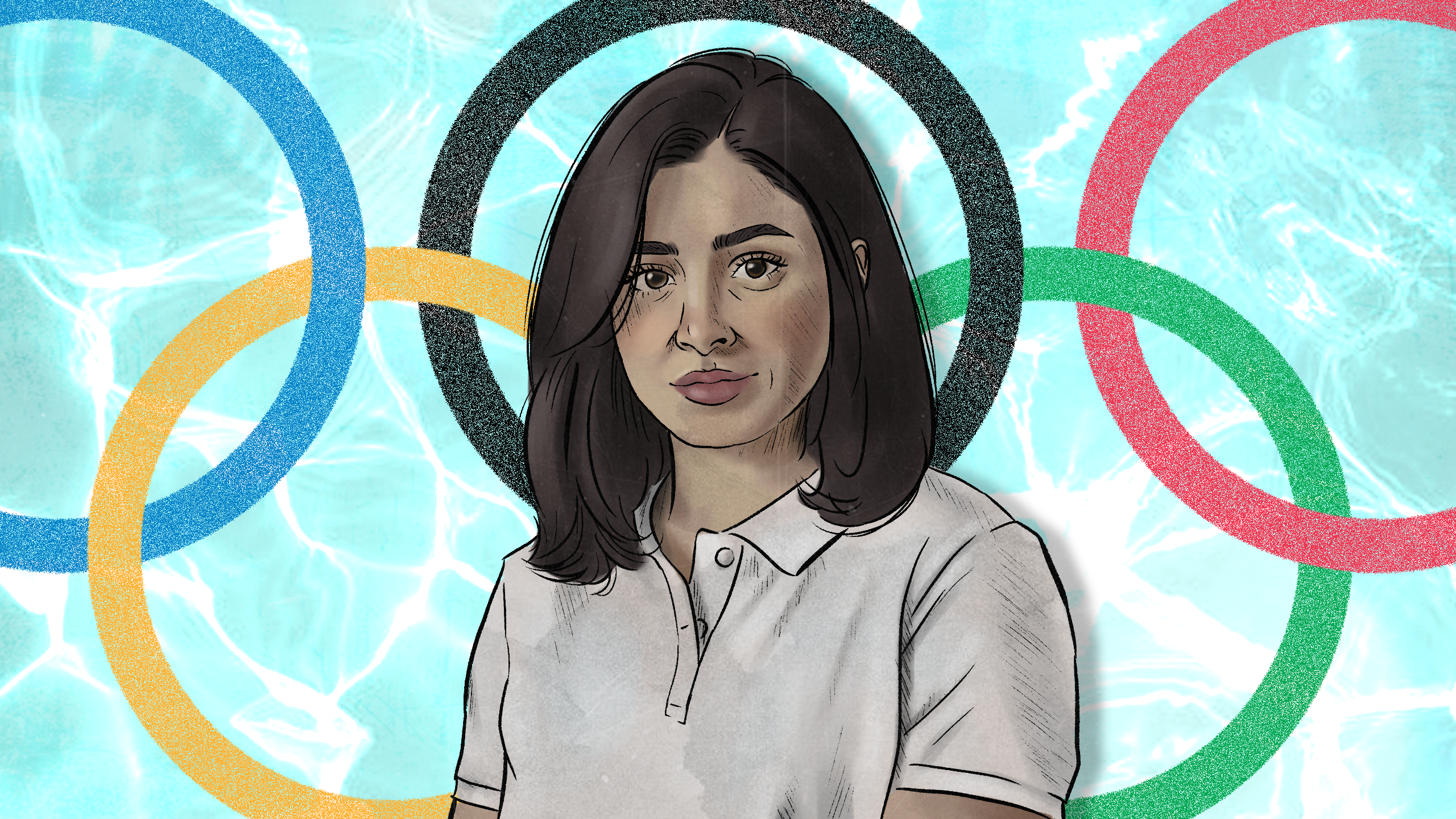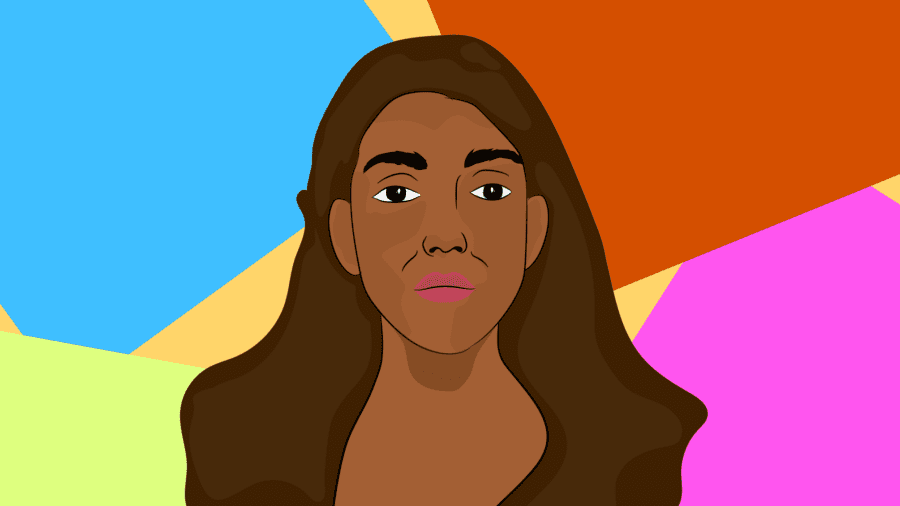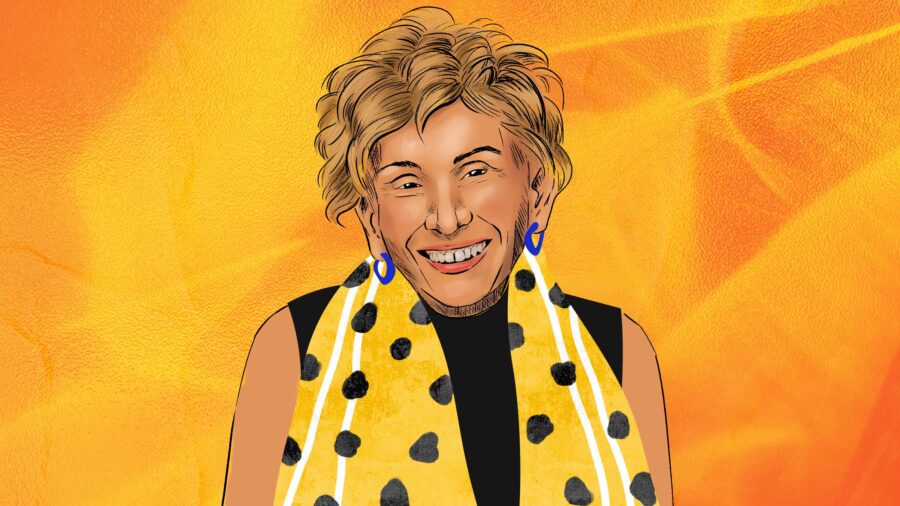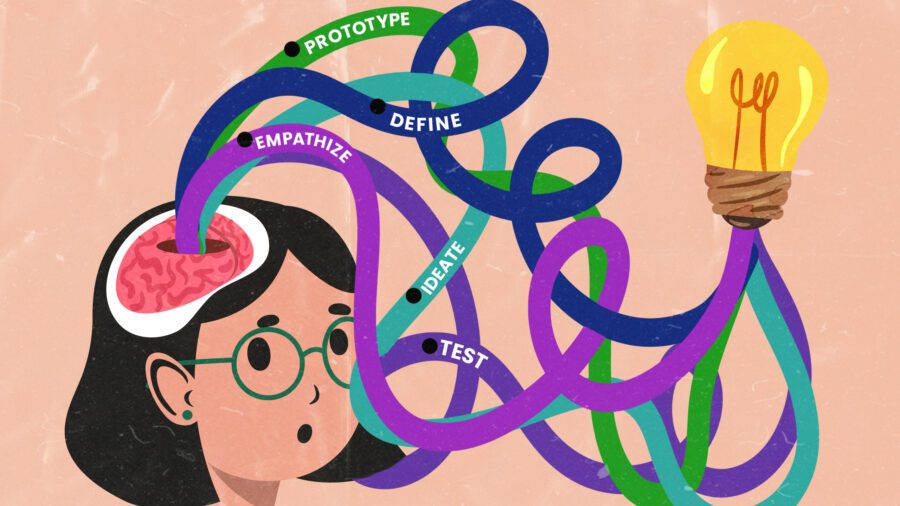
Olympian Yusra Mardini’s Incredible Story of Resilience, Rescue, and Refugee Rights
What was your childhood dream?
Perhaps you wanted to be a doctor, a teacher, or even an Olympic athlete. You probably spent your days trying to work towards that dream, seeking information about what you would need to do to get there or practicing to improve your skills.
When you laid down in bed for the night, your thoughts most likely focused on your progress. Upon falling asleep, your dreams were of what it would be like when you achieved your goal.
Now imagine having those dreams and trying to achieve them while your home was destroyed by war. You try to learn or practice while shuttling from your grandparents’ home to an aunt’s home just to have somewhere to stay. When you go outside to play, it’s under the threat of artillery strikes or sniper fire.
Those were the conditions that Olympic swimmer Yusra Mardini spent her teenage years living through growing up in Syria. An ongoing civil war has ravaged that country since 2011 and Yusra has lived most of her life not knowing what a peaceful environment is.
Like many of her fellow Syrians, Yusra fled her war-torn homeland to seek refuge in other countries, leaving friends, family, and belongings behind to find safety.
Join In 500 Million+ On The Journey to Greatness
A Childhood Spent in the Water and Yusra’s Olympic Dreams
Yusra grew up just outside the Syrian capital city of Damascus in the suburb of Darayya. Her father was a professional swimmer, and she watched the Olympic Games with him as a child, which inspired her dream of becoming a competitive swimmer herself.
The road to that dream became a reality as she began training at the age of nine under the sponsorship of the Syrian Olympic Committee.
Yusra quickly became a standout in the freestyle and butterfly events, and her Olympic aspirations were well under way when the civil war broke out in 2011, when she was just thirteen years old. It was during this initial onset of the war that her family’s house was destroyed, displacing them from their home.
The Mardinis had to rely on family to house them, with Yusra, her mother, father, and sister constantly moving between her grandmother’s and aunt’s homes. Just attending school or swim practice was a dangerous undertaking, as artillery shelling rocked the area. The threat of explosions was bad enough, but not the only reason for concern. Walking in the open made anyone a potential target of snipers that seemed to be perched on every rooftop.
In spite of the conditions, Yusra continued her training so that she could swim as a representative of her country at the Olympics. In 2012, a year into the war, she swam for Syria at the FINA World Swimming Championships, participating in multiple events.
As Yusra kept honing her skills in the pool, the war worsened away from it. After years of being surrounded by fighting and under constant threat, she began looking for a way to escape from the danger.
Yusra’s Story of Becoming a Refugee and Swimming for Her Life
Yusra knew that she had to flee her homeland in order to simply survive, and her swimming career became a secondary concern compared to staying alive. Along with her older sister Sarah, Yusra began investigating ways to escape from Syria and find refuge in another nearby country.
The two sisters had heard stories of friends finding ways across the sea to neighboring lands to find asylum. As unbelievable as it sounds, a Facebook refugee group they discovered became a great source of the information they sought. In this group, Yusra and Sarah gained insight into smugglers and the routes they used to get people to safety.
In August of 2015, the sisters set out to neighboring Lebanon, the first waypoint on their journey. From there, Yusra and Sarah traveled to Turkey, where they had made arrangements to meet up with smugglers who would take them to Greece. Making it to Greece would allow them to seek refuge further into Europe, but they had to get there first.
In Turkey, the smugglers loaded Yusra, Sarah, and eighteen other refugees aboard a small dinghy to make the 45-minute crossing to Greece. The load was too much for the small boat and the engine gave out in the middle of the water just fifteen minutes into the trip, leaving the group adrift and helpless. Worse yet, because the dinghy was only meant to carry a handful of passengers, it began to take on water and was in danger of sinking.
Sarah, like Yusra, was also a competitive swimmer and the sisters, along with two of the other passengers, dove into the water. The four of them swam for over three hours, pushing the powerless boat along the water until they ultimately made it safely ashore on the island of Lesbos in Greece.
“I was just trying to survive and to save myself and everyone on the boat.” – Yusra Mardini
Yusra and Sarah then continued their journey by making their way from Greece to Germany — on foot! The two completed their trek in September of 2015 and their entire escape from Syria had taken them twenty-five days in total.
Settling in Berlin and a Reunion with Family
Despite being with her older sister, Yusra struggled to make Berlin her home. She was in a foreign land and only had Sarah to give her a sense of comfort. That comfortability grew as her parents and younger sister were eventually able to reunite with herself and Sarah, but Germany still didn’t feel like home to Yusra.
“I didn’t really accept living in Germany at first because I thought I would be there only for a while, and then we could go back home when the war ended.” – Yusra Mardini
Once the realization that the civil conflict in Syria wouldn’t be resolved quickly, Yusra returned her focus to swimming. She started training at the Wasserfreunde Spandau club in an effort to regain a sense of normalcy in her life with a less harrowing swimming experience than the one she’d had on her way to Greece.
“The one thing that made me feel like home again was swimming.” – Yusra Mardini
Yusra began to settle into her new surroundings and regained her sense of purpose. As time and the war in Syria went on, she grew to feel more and more at home in Germany.
An Olympic Dream Fulfilled
As the calendar rolled into 2016, the Rio de Janeiro Olympics were fast approaching.
Yusra’s fleeing from her homeland had ended her support from the Syrian Olympic Committee, severely affecting her hopes of participating. Athletes struggled to get suitable levels of training without the financial support of their home countries’ committees, and Yusra’s refugee status put her in that exact situation.
But in advance of the 2016 games, the International Olympic Committee sought to assist these types of athletes. The IOC created the first Refugee Olympic Team (ROT) in order to support displaced athletes in achieving their aspirations.
To aid potential elite athletes affected by the worldwide refugee crisis, the IOC asked National Olympic Committees around the world to identify any refugee athletes they felt had the potential to qualify for the Rio Games in 2016. These candidates would then receive funding from Olympic Solidarity to assist with their training and qualification efforts.
Yusra was identified as one of these types of athletes and was named to this inaugural team.
Following the outbreak of civil war in Syria five years earlier and her 25-day journey of escape to Germany, she would get the opportunity to swim on the Olympic stage in Brazil. It was bittersweet for her, though, as she wouldn’t be there as a traditional representative of Syria. Yusra and the other members of the ROT would compete under the Olympic flag instead of the ones of their home nations.
“You don’t choose to become a refugee, you leave your country because of war and violence. [But] it made me proud, and it made me realize I have a voice that I can use to help people understand that refugees are normal people, who have hopes and dreams.” – Yusra Mardini
While the storybook ending would have seen Yusra swim to a medal-winning performance, that just wasn’t meant to be, unfortunately. But she didn’t need to stand on a podium to be victorious, as she and the other nine members of the ROT helped draw greater awareness towards the plight of refugees all around the world.
Not a Hollywood Ending, but Still a Story Worthy of a Movie
Winning a gold medal might not have been in the script for Yusra, but there ultimately was a script. Her story of getting smuggled out of Turkey and the subsequent heroic swim is the stuff of movies, and that’s exactly what happened as Netflix produced a film entitled “The Swimmers” to recount Yusra’s story.
“When we saw it on the screen for two hours, it was a very emotional thing to watch, but this movie tells the story of millions of refugees all around the world, it’s not just my story.” – Yusra Mardini
Yusra continually works to use the attention her story garners to bring more visibility to the plight of all refugees. In 2017, she became the youngest Goodwill Ambassador in the history of the United Nations Refugee Agency at just 19-years-old. She continues to travel around the world to visit refugee camps and help those forced to leave their homelands.
The swimmer just wants to help people stay afloat in uncertain waters.
The Right Mindset Can Be the Difference
Yusra Mardini’s work to help other refugees only began with her being named a Goodwill Ambassador. She is in the midst of creating a foundation to help her fellow refugees receive education and athletics assistance.
Her work should serve as an inspiration to all of us. Many people around the world have their lives upended by circumstances beyond their control and find themselves as proverbial “strangers in a strange land.” Yusra and Sarah found themselves arriving in Germany having not eaten for days and were turned away by multiple restaurants when they sought food.
If not for the kindness of a total stranger offering to feed the sisters, who knows how their story might have turned out. We should all be like that stranger and look for ways that we can help those struggling to find their way in unfamiliar surroundings. The UNHCR has resources for you to help or you can donate to the International Rescue Committee to make a difference.
If Yusra Mardini’s story can teach us anything, it’s that having a strong will can make all the difference in life. We at Greatness want to help you build the mindset that can help you achieve even more!
Read this article to learn the difference between a fixed mindset and a growth mindset and how to use a growth mindset to boost your potential. And stop beating yourself up over mistakes with The 7 Best Ways to Cultivate Self-Care & Self-Love.
Greatness Authors
Greatness Authors is a collection of writers, thinkers, curiosity experts, and students of the world who are committed to bringing you the most up-to-date, impactful, and inspiring information surrounding Greatness topics.

Redefining Poetry: How Instagram Sensation Rupi Kaur Showed That Poetry Is for Everyone

The Young Professional’s Guide to Advocating for Yourself at Work & Setting Healthy Boundaries

A Beginner’s Guide to Effortlessly Attracting Money and Growth Opportunities

Psychologist Edith Eger’s Inspirational Journey to Find Forgiveness and What It Means for You

Design Thinking 101: The 5-Phase Process and Why It Matters for Your Professional Development










